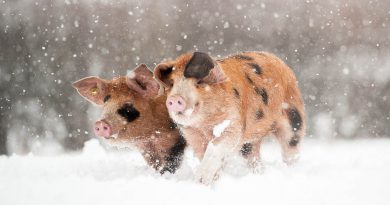Whistleblower Tips Off Stop UBC Animal Research about University’s Plans to Kill Endangered Sea Turtles
VANCOUVER (March 2, 2011) – Today, Stop UBC Animal Research urged the University of British Columbia’s (UBC) to spare endangered green sea turtles scheduled to die at the hands of university researchers later this month. Over the weekend, the animal advocacy group was tipped off by a UBC insider about the university’s plans to kill six to eight imperiled turtles in early spring. The whistleblower claimed UBC was killing the turtles because the university was closing some animal research facilities on UBC’s south campus and had no place to move the animals.
“While the world undertakes heroic efforts to save endangered sea turtles, it is shocking UBC is plotting to kill one of the most imperiled animals on Earth,” said Brian Vincent of Stop UBC Animal Research.
According to UBC Zoology Department head, Dr. Bill Milsom, who spoke with Stop UBC Animal Research, UBC obtained the turtles ten years ago from a turtle farm in the Cayman Islands. Dr. Milsom confirmed to the animal organization that the turtles have been used in research and would be killed at the end of the experiment. He denied UBC was killing them because of space constraints.
Under the Convention on International Trade in Endangered Species of Wildlife Fauna and Flora (CITES), UBC would have been required to obtain a permit to transport the sea turtles into Canada. Stop UBC Animal Research has asked UBC to provide the group with a copy of the CITES permit to verify the animals were obtained through the proper channels and to learn any details that would have been provided in such a permit. In addition, the animal advocacy organization requested specific information about the experiments UBC researchers have conducted on the turtles while housed at the university. UBC has yet to respond to the group’s requests.
All seven species of sea turtles are at high risk of extinction. Listed as endangered by the International Union for Conservation of Nature and Natural Resources, sea turtles face a host of threats. Those threats include: pollution, especially from oil spills, beach front development, ingestion of marine debris, such as plastic bags, the illegal turtle shell trade, and turtle egg and meat consumption. In addition, artificial lighting along beaches often discourages female turtles from nesting and disorients hatchlings who may mistakenly wander inland, exposing them to predation.
“All species of sea turtles are protected by international law because they are highly endangered,” said Vincent. “Instead of killing these at-risk animals, UBC should contribute to the long-term conservation of sea turtles by handing them over to a sanctuary or to the Vancouver Aquarium. Killing the animals after UBC has experimented on them for ten years just adds insult to injury. They’ve suffered enough.”
###

